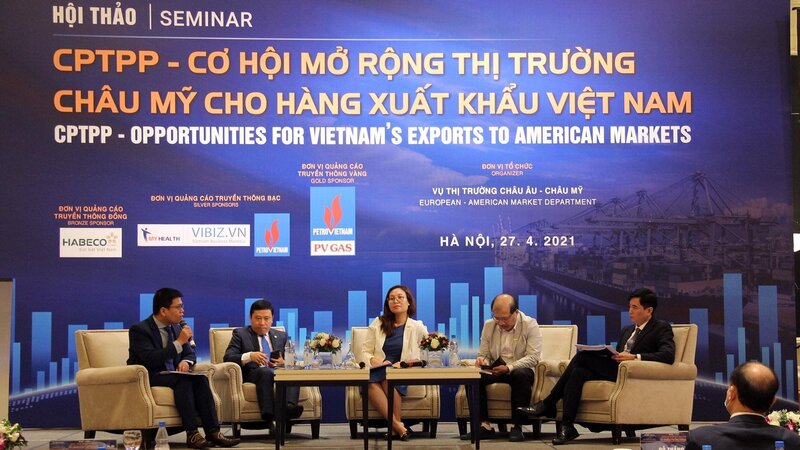CPTPP opens door for Vietnam goods to penetrate markets in the Americas
Despite Covid-19 impacts, Vietnam’s trade turnover with the Americas rose by 16% year-on-year in 2020 to US$111.5 billion.
Two years on since the implementation of the Comprehensive and Progressive Agreement for Trans-Pacific Partnership (CPTPP), the deal has been and would continue to be the driving force for Vietnamese goods to penetrate the markets in the Western Hemisphere.
| Deputy Minister of Industry and Trade Do Thang Hai. Source: MoIT |
Deputy Minister of Industry and Trade Do Thang Hai made the comment at a conference discussing the impacts of the CPTPP for Vietnam’s exports on April 27.
“Despite the severe Covid-19 impacts in 2020, Vietnam’s trade relations with countries in America gained positive results and remained highlights in the former’s trading performance in international markets,” Hai noted.
A report from the Ministry of Industry and Trade (MoIT) stated the country’s trade turnover with the Americas rose by 16% year-on-year in 2020 to US$111.5 billion, in which exports surged by 21.7% to US$89.7 billion, or 31.7% of total export turnover.
Meanwhile, Vietnam’s export performance with Canada and Mexico, two members of the deal, witnessed strong rise of 45% and 41% against 2018, before the signing of CPTPP, to US$4.4 and US$3.17 billion, respectively.
In the first three months of 2021, Vietnam’s trade relations with the continent rose against the last month of the previous year with an expansion of 15% in exports to Canada to US$1.13 billion, 12% to Chile by US$321 million, 17% to Mexico (US$931 million), and 35% to Peru (US$134 million).
| Overview of the conference. Source: MoIT |
Vietnam Trade Counselor in Canada Do Thi Thu Huong noted Canada is a potential market for Vietnam’s seafood, agricultural products, textile, footwear, and wood.
However, for local firms to better penetrate this market, Huong called for Vietnamese enterprises to be more active in studying the CPTPP.
“Enterprises should understand better the rules of origin and preferential rates applied for each category of products,” Huong noted.
Amid the pandemic situation, Huong suggested firms to adopt e-commerce platforms to boost trade with their Canadian peers.
Sharing the same view, Head of Dezan Shira & Associates’ business development in North America Dustin Daugherty stressed the importance for local traders to understand rules of origins before engaging in trading activities with their US partners.
While the US has not expressed intention to join the CPTPP in the future, Daugherty suggested Vietnamese firms could take indirect routes via Mexico and Canada to sell their products in the US market, but adding strict compliance with the rules of origin and putting more added value are key to enjoy preferential treatment.














